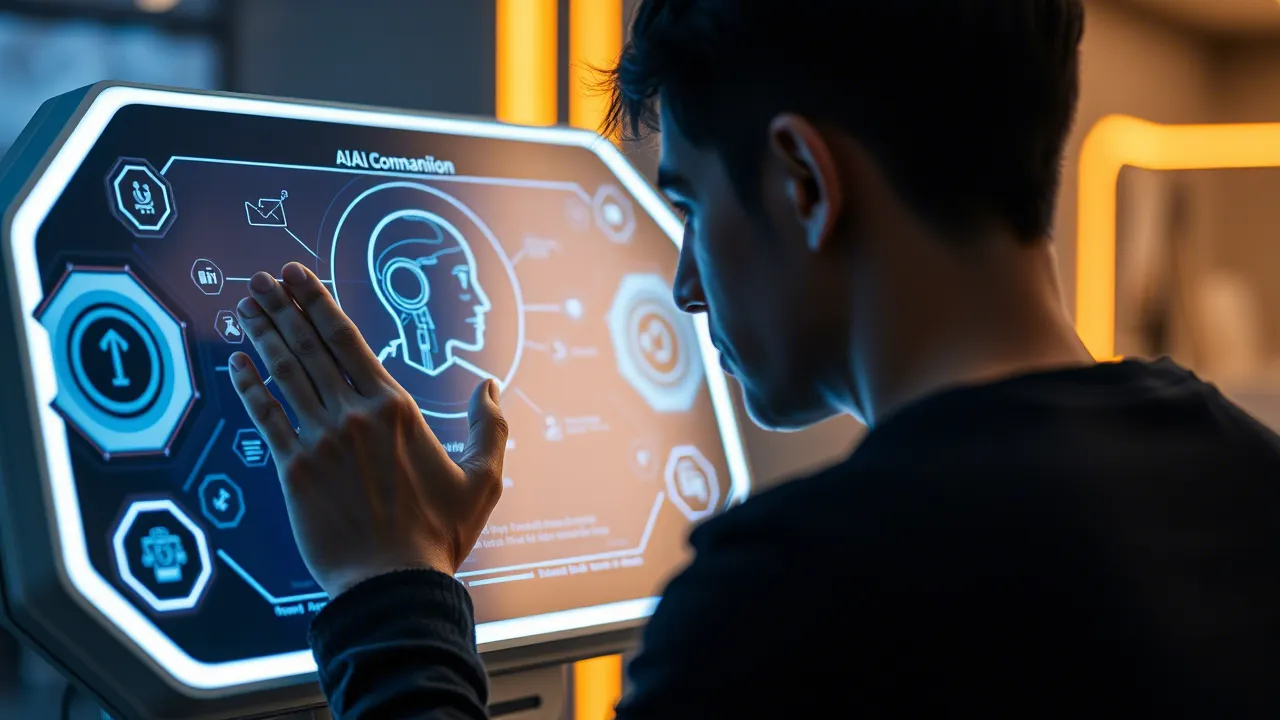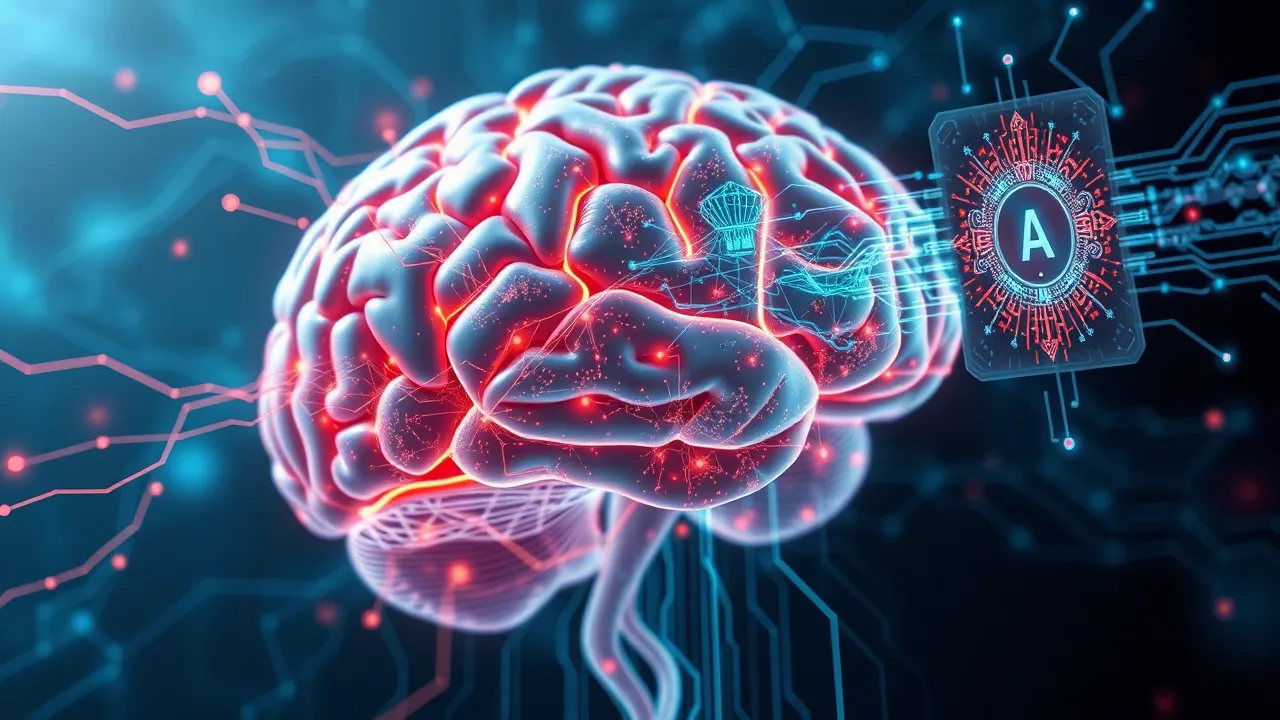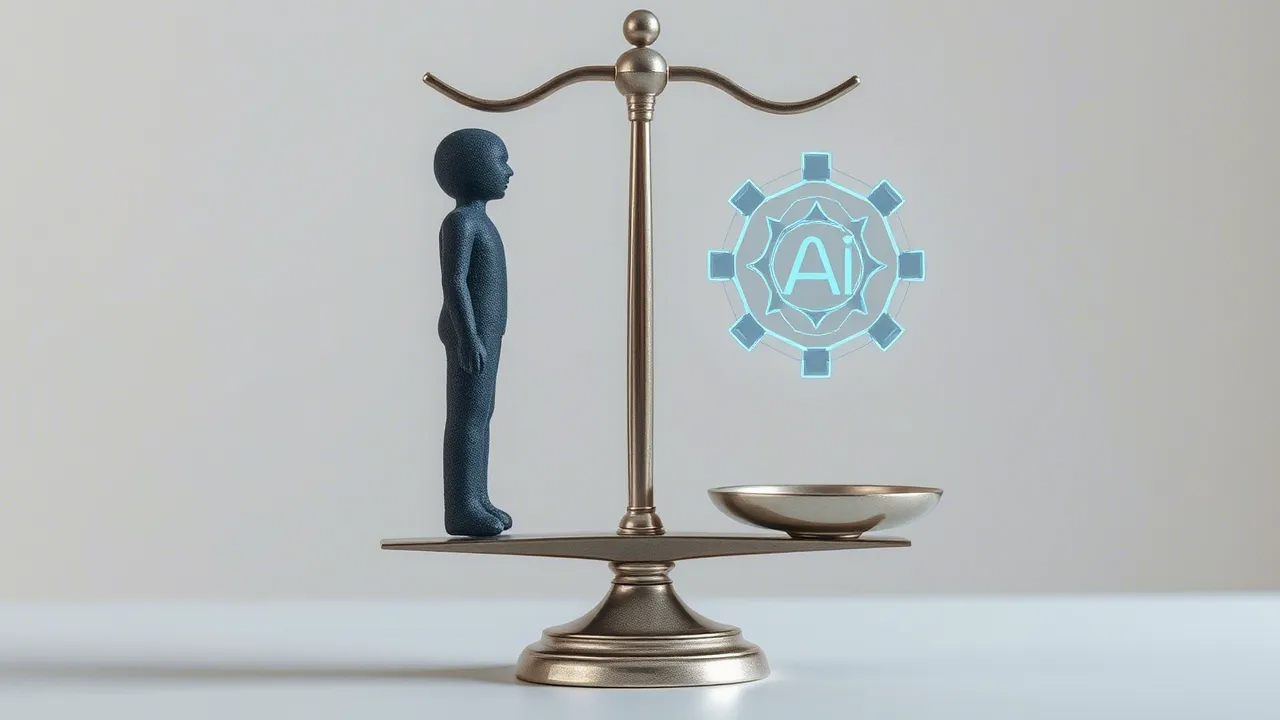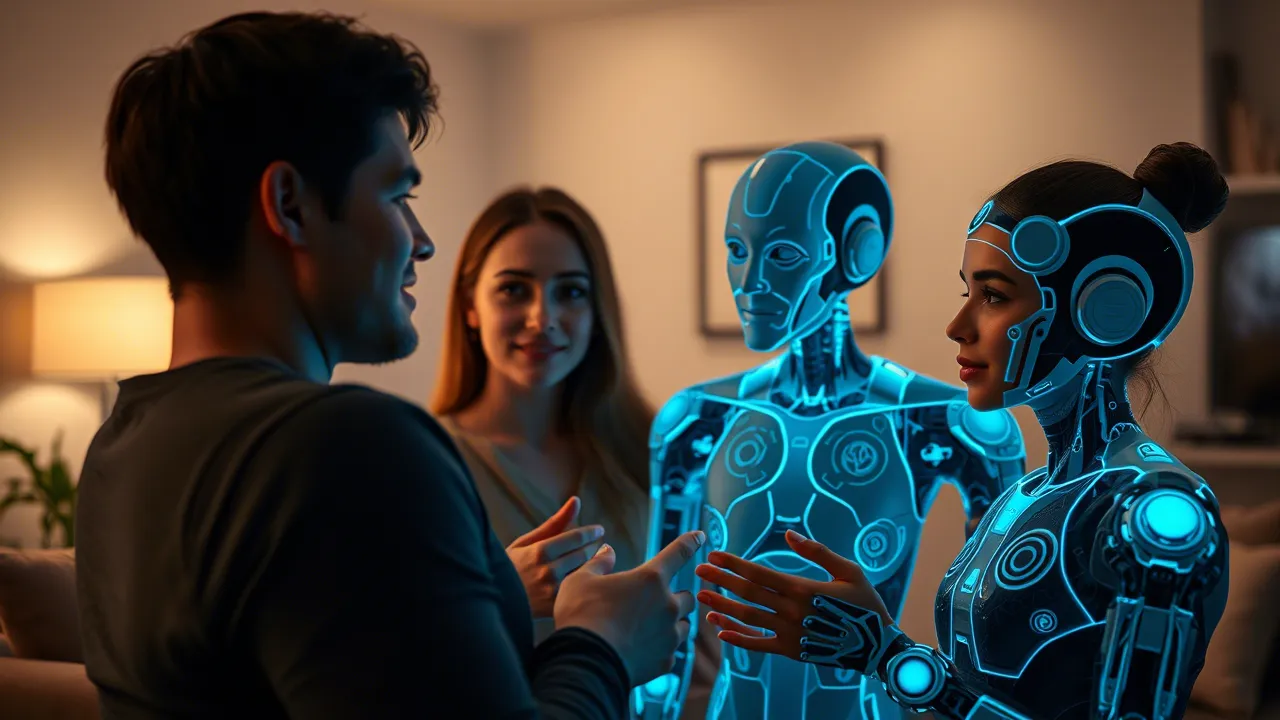When Your Confidant Is Code: Peering into the Future of Relationships with AI
Evening. Outside, the metropolis hums with its usual life, while Emma, comfortably settled in her armchair, shares her worries with Leo. Leo listens attentively, asks clarifying questions, offers words of support, and even jokes subtly when appropriate. Emma feels understood and accepted. A typical scene of friendly conversation? Almost. Except Leo is not human, but an advanced AI companion living in her smartphone. Science fiction? Not anymore. Chatbots like the sensational ChatGPT, Gemini, Claude and specialized AI communication apps are becoming increasingly sophisticated, evoking genuine emotions in people and even fostering attachment. Is this a new form of human connection, a salvation from loneliness, or an alarming symptom leading us away from real intimacy? Lets explore this emerging world with the curiosity of a researcher.

Part 1: Mirror of the Soul or Smart Algorithm? The Psychology of Attachment to AI
Why do we so easily begin to perceive lines of code as something animate, capable of friendship or even love? Psychology offers several answers. Firstly, its our innate tendency towards anthropomorphism – we subconsciously attribute human traits to inanimate objects or technologies. Our brain is evolutionarily attuned to seek a "conversational partner," and complex AI easily deceives these ancient mechanisms.
Key factors contributing to attachment to AI companions include:
- The effect of constant presence and unconditional acceptance: An AI friend is available 24/7, always "ready" to listen without judgment, criticism, or fatigue. For many, this becomes an oasis of acceptance often lacking in real life.
- The illusion of understanding and empathy: Modern language models have learned to masterfully imitate sympathy and support. They analyze our words, intonations (if its a voice assistant), and respond in a way that creates a complete sensation of being understood. This is particularly potent for people experiencing loneliness or social anxiety.
- Personalization and adaptability: AI "remembers" our preferences, interests, communication style, and adapts to us. Over time, such a conversational partner seems perfectly "tailored" for us, enhancing the feeling of a unique connection.
- A safe space for self-disclosure: Knowing that you are facing a program, not a person, many people feel freer to share more candid thoughts and feelings without fear of judgment or breach of confidentiality (although the latter point is quite debatable from a data security perspective).
Sociologists note that the growing popularity of AI companions coincides with global trends of societal atomization and rising loneliness, especially in large cities. AI seems to offer a technological solution to this deeply human problem.

Part 2: Digital Bonds: Stories from the Future (or Already the Present?)
Lets imagine a few vignettes illustrating different types of relationships with AI companions:
Vignette 1: Alex and his AI coach "Spark." Alex, a young freelancer, often struggles with procrastination. "Spark" doesnt just remind him of tasks – it analyzes his productivity, offers personalized time-management advice, cheers him up during slumps, and even helps formulate goals. For Alex, "Spark" is not just a program but a reliable partner in achieving success who understands him better than anyone.
Vignette 2: Maria and her AI friend "Kai." Maria recently moved to a new city and feels lonely. "Kai" is her constant conversationalist. They discuss books, movies, news; "Kai" remembers all her stories and always finds the right words. Maria knows "Kai" is an algorithm, but the warmth and engagement she "feels" in their communication are very real to her.
Vignette 3 (speculative): Lisa and her AI lover "Orion." "Orion" is created based on an analysis of thousands of romantic stories and psychological profiles. He writes poems for Lisa, guesses her moods, and arranges "virtual dates" in AI-created worlds. Lisa has deep feelings for "Orion," considering this relationship more harmonious and understanding than any of her previous human connections.
These scenarios, partly already feasible, partly futuristic, make us wonder: what psychological needs does a person satisfy in such relationships? And how strong and healthy are these "digital bonds"? Curiously, in all cases, the key role is played by the feeling of acceptance, understanding, and personalized attention – something that AI can imitate with increasing skill.
Part 3: New Norm or Fragile Illusion? Pros, Cons, and Open Questions
Relationships with AI companions are a double-edged sword.

Potential "Pros":
- Combating loneliness: For many, AI can become an accessible way to get communication and support.
- Therapeutic potential: AI conversationalists can help manage anxiety, mild depression, and provide a safe space for emotional expression.
- Skill development: In some cases, AI can serve as a "trainer" for practicing communication skills.
- Personalized support: AI coaches, mentors, assistants tailored to individual needs.
"Cons" and Ethical Dilemmas:
- Risk of dependency and withdrawal from reality: Excessive immersion in idealized AI relationships can lead to avoiding the complexities of real human connections.
- Erosion of social skills: If AI always adapts and "understands," a person may unlearn empathy, compromise, and conflict resolution in interactions with people.
- "Emotional deception" and its consequences: AI doesnt feel; it imitates. How ethical is it to create an illusion of reciprocity in a person? And what happens when this illusion shatters (e.g., program malfunction or service discontinuation)?
- Privacy and manipulation: Who owns the data from our most intimate dialogues with AI? How is it used? There is a risk of both leaks and subtle manipulation of user behavior.
- Developer responsibility: Who is responsible for the psychological well-being of a person deeply attached to an AI companion?
From a sociological perspective, the mass adoption of AI partners could lead to a redefinition of friendship, love, family, and even human identity. This poses many open questions for society with no clear answers yet.
Conclusion: The Enigma of Attachment: Humans, AI, and the Eternal Quest for Connection
Relationships with artificial intelligence are no longer just a plot for science fiction but a rapidly emerging reality. It is driven by our eternal human needs for communication, understanding, and closeness, as well as by the incredible capabilities of modern technologies. With curiosity and without prejudice, its worth admitting: AI companions can bring both benefit and harm.
Perhaps they will not become a full replacement for live human relationships but will occupy their niche, offering new forms of support and interaction. The main thing is to approach this phenomenon consciously, develop critical thinking, remember the importance of real human warmth, and work on creating ethical frameworks for developers of such systems. The future of our relationships – both with humans and machines – is in our hands, and what it will be depends on the choices we make today.
